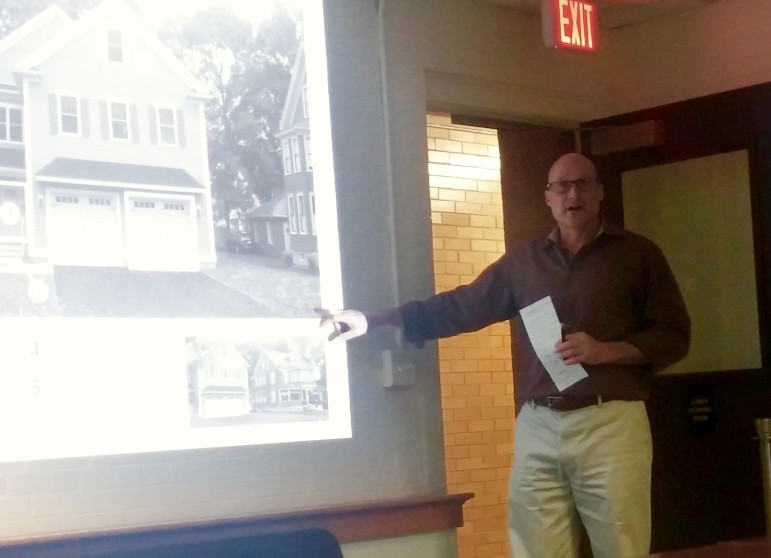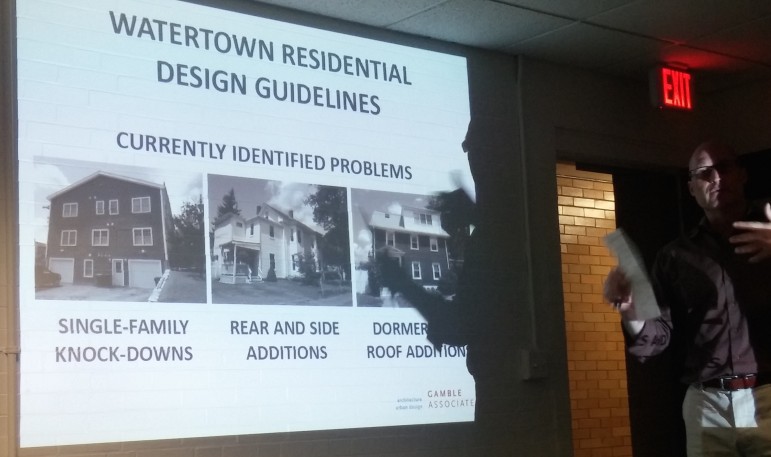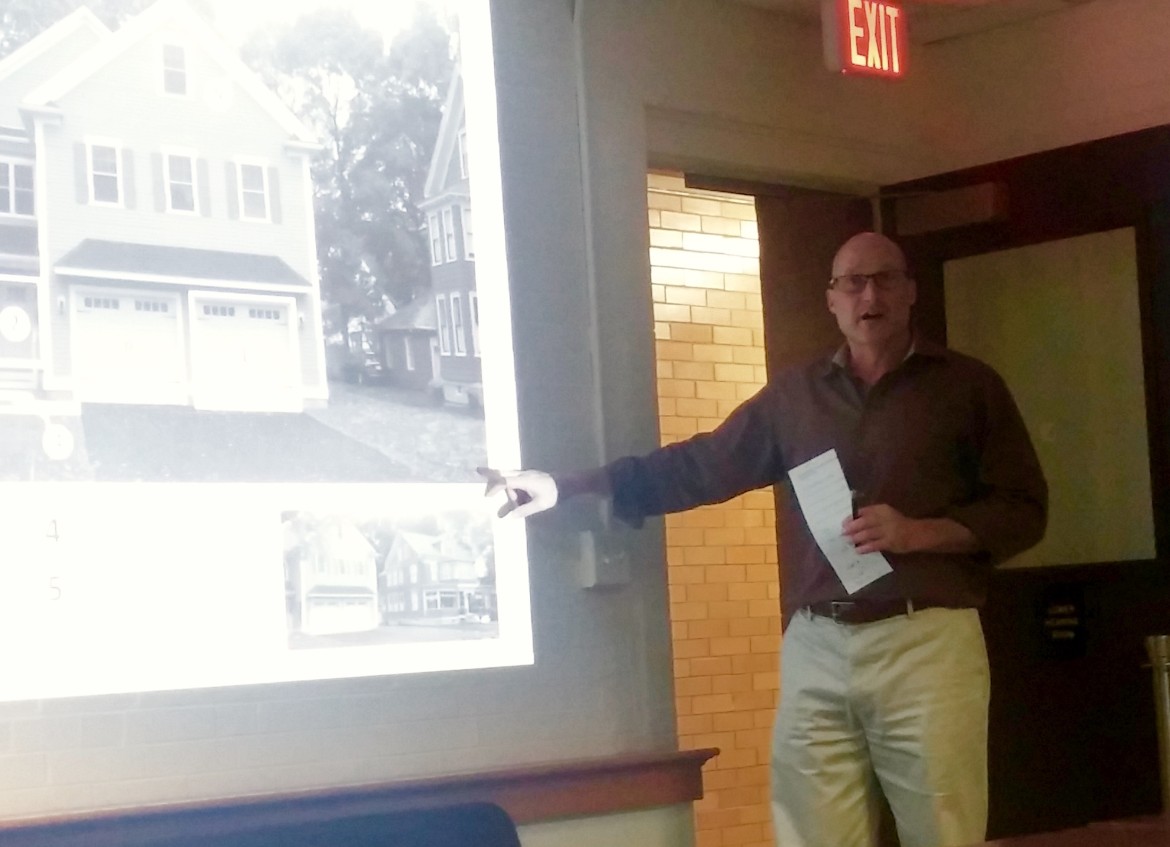
Charlie Breitrose
Consultant David Gamble shows residents examples of bad design during the Community Listening Session at Town Hall.
Town officials have asked for the opinions of residents for some design guidelines that would apply to single- and two-family projects in Watertown’s residential neighborhoods, and they got a variety of opinions on Tuesday night.
The Community Listening Session at Town Hall was the second of three, with the third one taking place Thursday, Oct. 29 at the Police Station from 6:30-8 p.m.
The session was led by David Gamble, a design consultant hired by the town to work on creating Residential Design Guidelines. He previously helped create Design Guidelines for bigger commercial and residential projects in Watertown’s business districts and main arteries. This process will be more difficult, he said.
“I, like many of you, believe your home is like your castle,” Gamble said. “People have property rights and are worried about things that directly impact people’s houses.”
Rather than creating a set of rules that must be followed, Gamble said the Residential Design Guidelines would help steer future developments and additions to homes.
“You can use the guidelines to encourage developers to do the right thing,” said Gamble, who had slides showing examples of alternative ways to build a home or make and addition that might be more palatable to neighbors.
The idea for design guidelines for residential areas came up after residents complained of seeing more and more smaller homes, usually single family ones, torn down and replaced with large, two-family projects.

Charlie Breitrose
Some of the major concerns in current projects going up in Watertown’s Residential Neighborhoods are demonstrated by David Gamble, who is working with the town to create a set of Residential Design Guidelines.
Resident Input
The audience broke up into smaller groups to discuss what they would like to see from the guidelines, what they worried about and ways to provide incentives to follow the guidelines.
Residents said they wanted to allow “freedom of expression” for projects but also have continuity with homes around it. A respect for the current homes in the neighborhood also came up a few times, particularly not building homes that are much greater size, and therefore look out of place and also cast shadows on neighbors.
Many agreed that it would be helpful to have a set of examples of “good designs” for residents and buildings to look at and use.
Some wanted to make sure the new properties would be affordable to those currently living in Watertown. Others worried that the guidelines would make projects more expensive, and homeowners would not be able to make an addition to their home.
Other ideas came up, but were not agreed upon by everyone. Some include having a neighborhood council to give recommendations on planned projects. This could be contentious, other said, and there is nothing stopping people from talking to neighbors about what they plan to do to their home or property
Another idea with mixed reaction was limiting the colors that can be used to paint the exterior of homes.
Some worried about the design guidelines going too far. The group struggled to agree on where the line should be drawn for what is acceptable, and also, what projects would have to be reviewed by either the town Planning Department or go before the Planning and Zoning Boards. Currently, the only single and two family that must go before the Planning and Zoning Boards are ones that do not meet the town’s zoning requirements and must get a special permit.
As for incentives, the idea of giving out awards to good projects came up, with the hope that if developers get one or two, it may help them get more work in town. Other suggested expediting the approval process for projects meeting the guidelines.
At the first Community Listening Session, held last week in East Watertown, some of the comments were similar, but the meeting was also attended by some developers.
“They thought we needed to show good examples of development, too,” Gamble said. “There was more talk about tree cover and canopy, and about parking not saturating the site.”
What’s Next
There will be a Townwide Forum called Preserving Our Neighborhoods on Thursday, Nov. 12 at 6:30 p.m. at the Watertown Middle School Auditorium. Along with looking at issues facing the town’s neighborhoods, it will explore tools available to preserve neighborhood character, including: residential design guidelines, ordinances, zoning and regulation and neighborhood conservation districts.
After that meeting, Gamble will spend the rest of the fall coming up with a draft of the Residential Design Guidelines to present to the Town Council and Planning Board.
More on the Residential Guidelines:
Watertown Officials Looking Into Creating Design Guidelines for Homes
